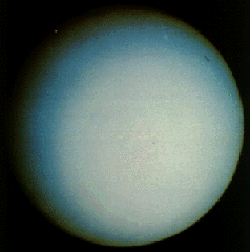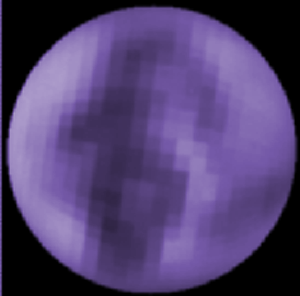In Roman mythology Neptune (Greek: Poseidon) was the god of the Sea.
Neptune
In Roman mythology Neptune (Greek: Poseidon) was the god of the Sea.
After the discovery of Uranus, it was noticed that its orbit was not as it should be in accordance with Newton's laws. It was therefore predicted that another more distant planet must be perturbing Uranus's orbit. Neptune was first observed by Galle and d'Arrest on 1846 Sept 23 very near to the locations independently predicted by Adams and Le Verrier from calculations based on the observed positions of Jupiter, Saturn and Uranus. An international dispute arose between the English and French (though not, apparently between Adams and Le Verrier personally) over priority and the right to name the new planet; they are now jointly credited with Neptune's discovery. Subsequent observations have shown that the orbits calculated by Adams's and Le Verrier's diverge from Neptune's actual orbit fairly quickly. Had the search for the planet taken place a few years earlier or later it would not have been found anywhere near the predicted location.


